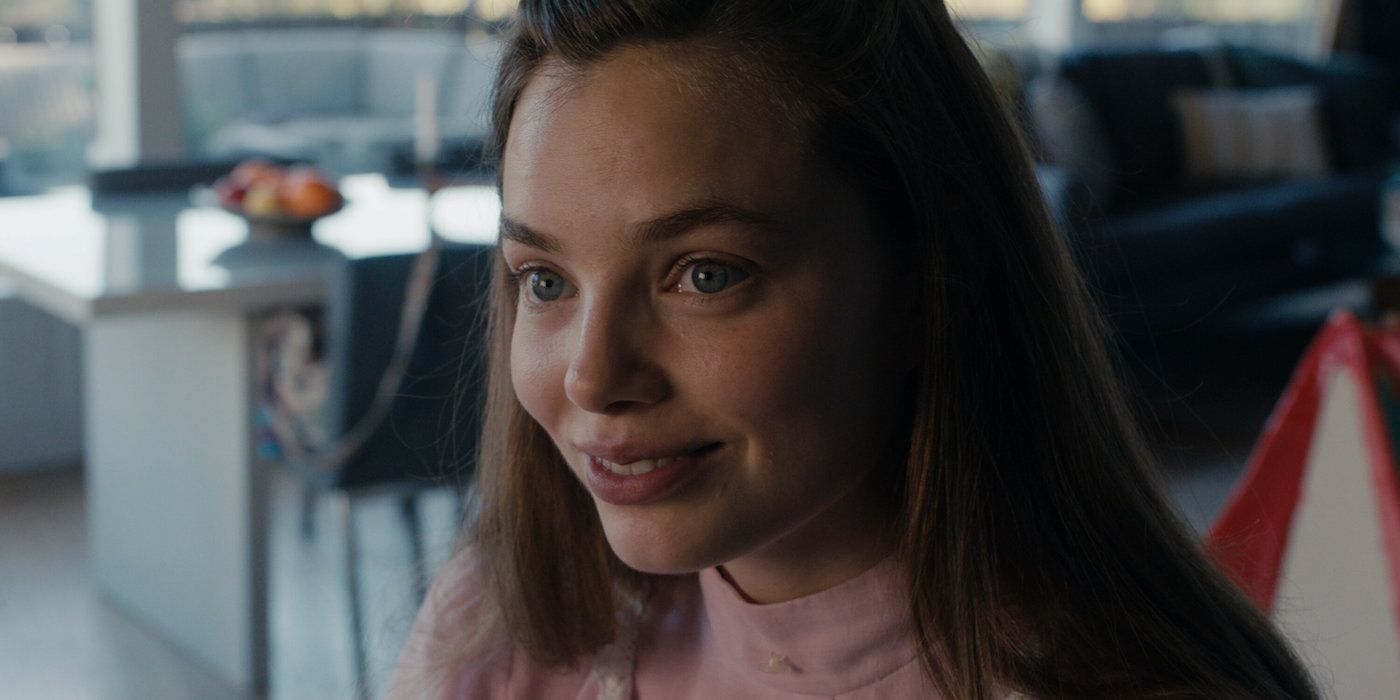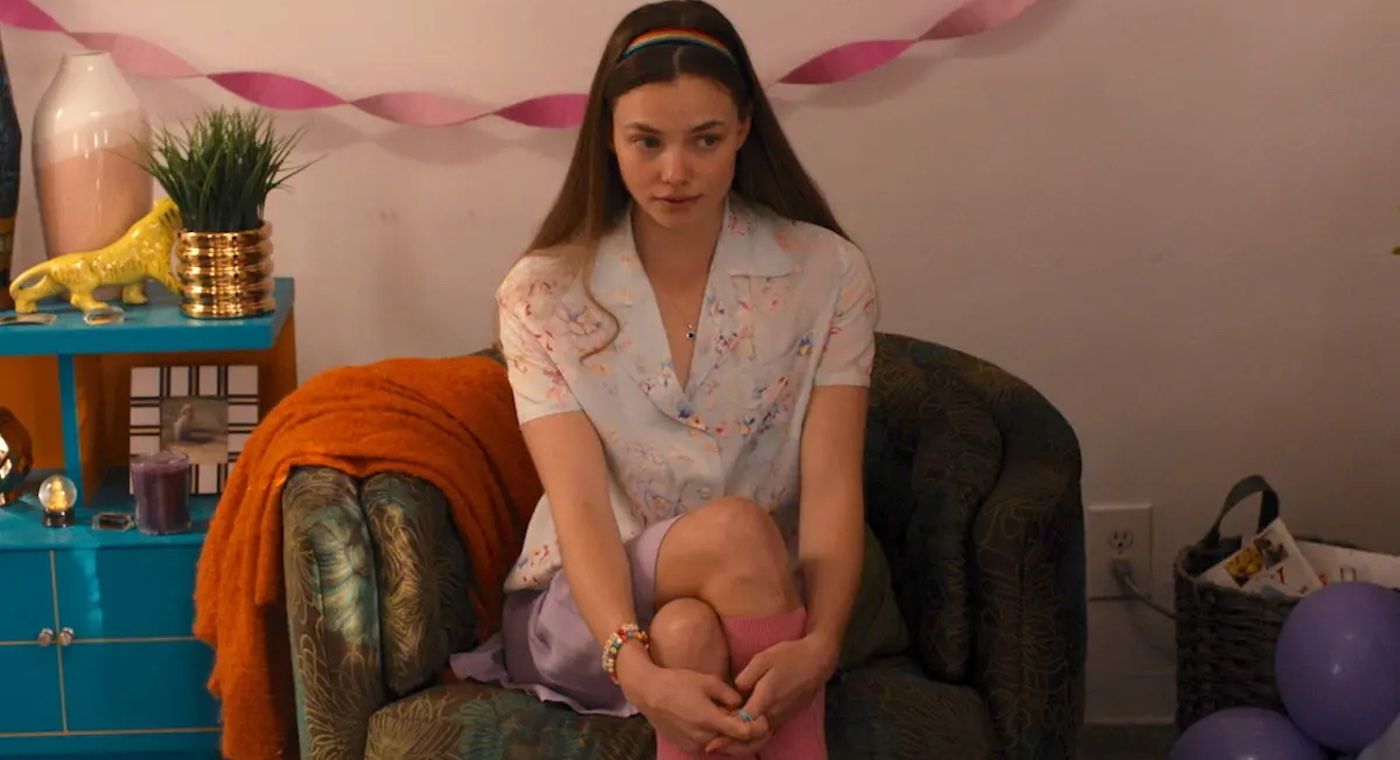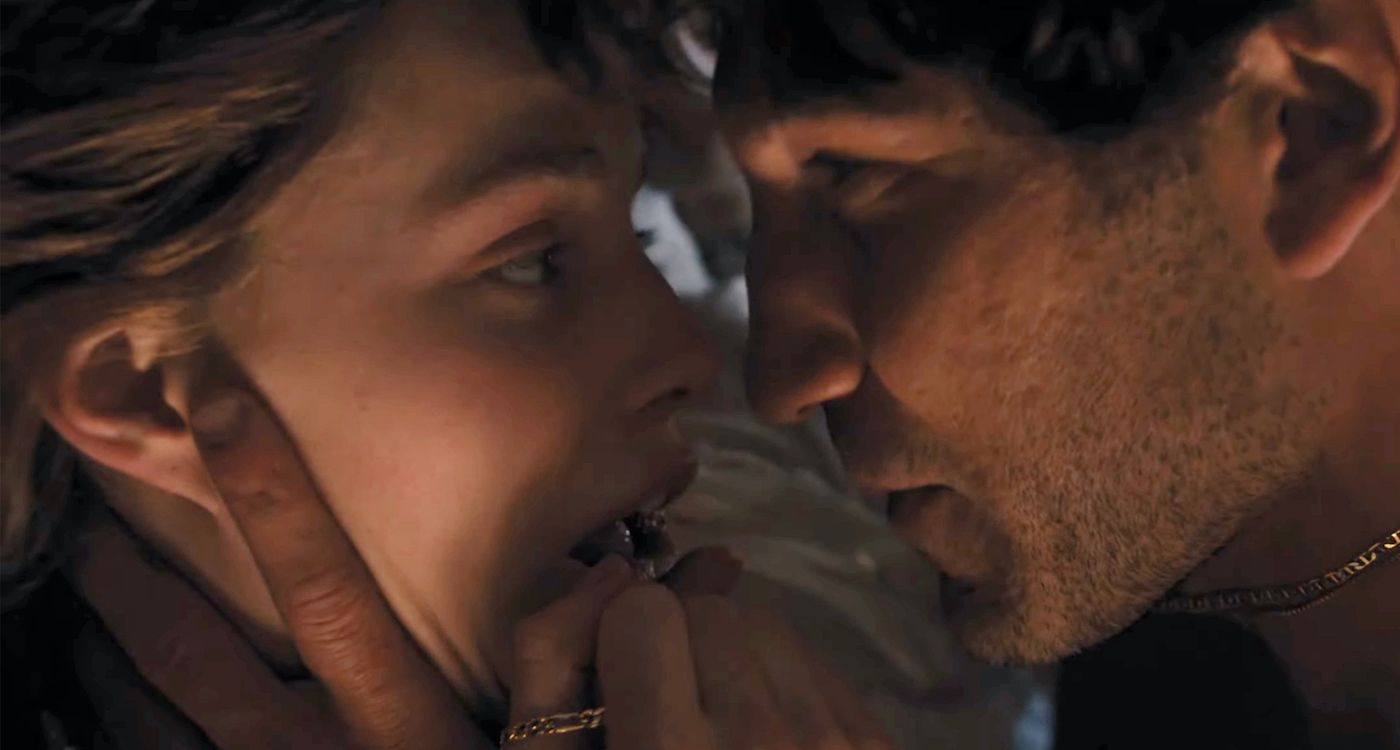Perhaps it’s no surprise that Sharp Stick has run into controversy. After all, it was written and directed by Lena Dunham, ever since Girls debuted on HBO in 2012, Dunham has been a lightning rod for controversy, from Girls’ noted lack of diversity to a number of painfully tone-deaf comments on social media. While she still has her supporters who stand by the voice-of-a-generation plaudits they gave to Girls, Dunham’s detractors are numerous and intense. Although unpacking why that’s the case would make this article much too long, suffice it to say that Sharp Stick was under intense scrutiny right from the start.
A week before Sharp Stick’s Sundance debut in January, Amy Gravino, an autism advocate who specializes in sexuality, claimed that she was approached to consult on the script before being unceremoniously ghosted. The film, you see, is about a naive young woman named Sarah Jo (Kristine Froseth), who discovers her sexuality after her development was stunted by an emergency hysterectomy at the age of seventeen. The fact that Gravino was approached indicates that Sarah Jo was, at some point, intended to be autistic, even though the script never said so explicitly; the sudden ghosting suggests that Dunham went in a different direction or, less charitably, decided that she didn’t need to hear from an actual autistic person after all.
As an actual autistic person myself, I was quite disappointed by this. Media focused on explicitly autistic characters is rare; media about autistic women is rarer still; media that engages with autistic sexuality is almost non-existent. The fact that Dunham cited movies like Belle de Jour, A Woman Under the Influence, and An Unmarried Woman as inspiration for Sharp Stick was even more promising. I would absolutely love a movie where autistic people are taken seriously as adults, with complex inner lives and deep sexual desires. Some autistic people behave in ways others might consider childish - wearing pajama bottoms to class, fixating on Pokémon, etc. - but that does not make us children. We have sexual needs, as sweet and ugly and contradictory as neurotypical people. If Dunham committed, listened to Gravino, and powered through the solipsism that has always been her greatest weakness as a writer, Sharp Stick had the potential to be great. Instead, well…
A spokesperson insisted that Sharp Stick was inspired by Dunham’s own experience with a hysterectomy and that Sarah Jo was not written as autistic. That may be true, although I seriously doubt it. What is absolutely not true, however, was something else the spokesperson said: “Nothing about Sarah Jo was coded to suggest or convey neurodivergence.” The act of “coding” a character, or giving them traits that implicitly suggest they are a part of a certain community, is not necessarily purposeful; for instance, Spock from Star Trek has a flat affect and difficulty with figurative language because he’s a Vulcan, but these qualities also code him as a person on the autism spectrum. Dunham’s intentions when writing Sarah Jo have no bearing on whether Sarah Jo is coded as autistic - and Sarah Jo is really, really coded as autistic.
Sarah Jo is a twenty-six-year-old woman who, at the start of the film, dresses in overalls and long-sleeve shirts with flower patterns that look like nursery wallpaper. In her hair, she wears cutesy bows and barrettes. Her voice is high-pitched, girlish, and somewhat nasal. Despite being twenty-six and having a mother (Jennifer Jason Leigh) and a sister (Taylour Paige) who are very frank about sexuality, she can initially think of nothing lewder than searching “two people having sex together.” She is so literal-minded that she thinks a “blowjob” entails blowing on a man’s penis like a birthday candle. She is organized, taking notes while watching porn (“why is this pretty girl so sad?”) and creating an “alphabet of sex” wall decoration with the aesthetic of a grade school art project (E is for “Eiffel tower,” F is for “fisting.”) She is often blunt and tactless, straight-up asking her hunky married neighbor Josh (Jon Bernthal) if he thinks she’s beautiful. And occasionally, she pulls a face - buggy eyes, gaping mouth - that gives me flashbacks to Maddie Ziegler in Music. I’m not saying Dunham intentionally wrote Sarah Jo as autistic, but if she did want to write her as autistic she wouldn’t have to change a thing.
The problem isn’t that these traits are clichés. Many of them are, of course, but there are elements of truth in all of them: I’ve known a dozen autistic girls who dress exactly like Sarah Jo. The problem is that Sarah Jo is so obviously autistic that Sharp Stick only makes sense as a story if that fact is acknowledged. It wouldn’t solve every problem - Sarah Jo’s naïveté would stretch credulity even if she were raised in a bunker Unbreakable Kimmy Schmidt-style - but it would provide much-needed logic to an illogical character, as well as an emotional throughline as she explores the strange, wonderful world of sex. Maybe it wouldn’t have been a good movie, but it would have been an attempt at something.
Instead, I’m reminded more than anything of The Big Bang Theory - which is rarely a good sign. Sheldon Cooper (Jim Parsons) is very clearly on the spectrum: he can’t understand sarcasm, he has a limited social battery, and he’s obsessed with routines (Thursday is Comic Book Night) and rules (he can only sit in one spot on the couch). While the show occasionally got serious enough to have him talk about how things like intimacy and spontaneity don’t come easily to him, Sheldon is never explicitly acknowledged as being autistic; this is because, if the show acknowledged that, it would also have to acknowledge that its portrayal of autism is abysmal. Sheldon is portrayed as a petty, humorless tyrant who is barely tolerated by his friends, occasionally getting their revenge by disrupting his routines and gleefully watching him try to keep his wits about him. It would take a show that’s already hit-or-miss and make it unbearably cruel.
Similarly, Dunham’s refusal to acknowledge the autistic coding comes across as cowardice. If she were to acknowledge that she wrote Sarah Jo as autistic, she’d have to acknowledge that she wrote Sarah Jo as an absolute caricature. She’d have to acknowledge the fact that she wrote a character who was clueless, childish, and naive, and, subconsciously or otherwise, equated that with autism. She’d have to question why she seems to find the cutesy naughty words (“do not want to see wide open anus holes”) so precious in an infuriatingly condescending way. And she’d have to question whether good intentions are enough, or if she even had good intentions at all.



